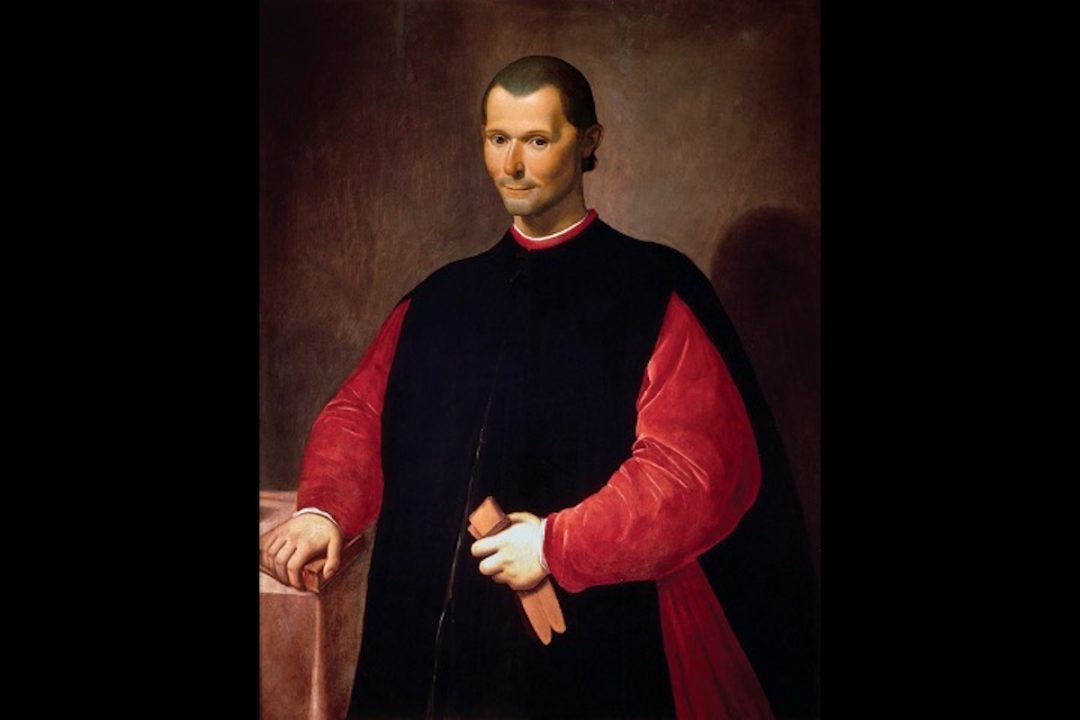
When discussing the intellectual influences on the Founding Fathers of the United States, one typically hears names such as Locke, Montesquieu, and Blackstone. However, one influential thinker often overlooked is Niccolò Machiavelli. Far from being merely the author of The Prince, a treatise often associated with ruthless political maneuvering, Machiavelli also penned Discourses on Livy, a profound examination of republican government and civic virtue. It is this work that resonated with the Founding Fathers, providing insights into the nature of republics, the dangers of corruption, and the balance of power — concepts fundamental to the American experiment.
Machiavelli and Republican Virtue
Unlike the cynical realpolitik of The Prince, Discourses on Livy reveals Machiavelli’s admiration for the Roman Republic, which he regarded as a model of political virtue and strength. Machiavelli argued that liberty thrives in a republic when citizens actively participate in governance and hold their leaders accountable. In fact, he believed that popular uprisings against corrupt leadership are not threats to liberty, but its preservation. As he wrote in Discourses:
When a people is corrupted and without virtue, it is impossible for them to maintain a free government. [Book I, Chapter 17]
This assertion struck a chord with the Founding Fathers. Thomas Jefferson, James Madison, and others understood that only a virtuous and vigilant citizenry could maintain a republic. Jefferson famously remarked that “eternal vigilance is the price of liberty” — a sentiment echoing Machiavelli’s assertion that the people’s willingness to rise against corruption preserves freedom.
The Balance of Power
Machiavelli’s writings also explored the necessity of balancing power to prevent tyranny. In Discourses on Livy, he observed:
It is necessary that the institution of a Republic shall have such a form that the interests of the private citizen shall never be opposed to the public good. [Book I, Chapter 37]
This principle found its way into the very structure of the U.S. Constitution. The Founders recognized that human nature, prone to ambition and self-interest, required a system where power checked power. Madison’s famous words in The Federalist, No. 51 — “ambition must be made to counteract ambition” — reflect Machiavellian wisdom. In Machiavelli’s view, republican liberty is safeguarded not by suppressing ambition, but by channeling it through a balanced government, where competing interests keep one another in check.
Liberty and Corruption
In Discourses, Machiavelli warned that corruption, when left unchecked, will inevitably destroy a republic. He explained that the downfall of Rome was due not to external threats but to internal decay, as citizens became more concerned with their private gain than the public good. As he lamented:
Corruption and disorder increase in Republics if they are not renewed by recalling them to their first principles. [Book III, Chapter 1]
The Founders took this to heart. They knew that the preservation of the United States required not only good laws, but also a continuous effort to maintain civic virtue. John Adams bluntly stated that the Constitution was designed “for a moral and religious people” and would be “wholly inadequate to the government of any other.” The Founders saw the Constitution as not just a framework for government, but a guide for the people to guard against the moral decay that could endanger the republic.
Warnings Against Tyranny
Perhaps the most compelling Machiavellian influence on the Founders is his stark warning against tyranny. Machiavelli observed that when a single ruler accumulates unchecked power, liberty perishes. This is why the Founders embedded separation of powers and federalism into the Constitution. They knew that consolidating authority into one branch or one person would lead to despotism. As Machiavelli succinctly put it:
The institutions of a Republic must ensure that the governing authority is divided, so that no one part becomes dominant and endangers the freedom of the whole. [Discourses on Livy, Book II, Chapter 2]
George Washington, who famously relinquished power after his presidency, was well aware of this principle. His voluntary resignation was an act of republican virtue, consciously resisting the temptation to consolidate power — a lesson directly informed by the cautionary tales in Machiavelli’s works.
The Pragmatic Realism of Machiavelli
While Machiavelli is often caricatured as a cynical advocate of power for power’s sake, the Founding Fathers saw in his Discourses a pragmatic realism about human nature. They knew that mere idealism was insufficient; a successful republic had to anticipate human flaws and craft a system resilient against them. Machiavelli’s recognition that people are motivated by self-interest inspired a system of checks and balances that still endures.
A Rejected Cynicism
However, it is worth noting that while the Founders embraced the republican ideas found in Discourses on Livy, they largely rejected the ruthlessness of The Prince. To them, the end did not justify the means. Rather, they sought to build a government that would encourage virtue rather than manipulate vice. As Jefferson wrote to John Adams, “Machiavelli’s Prince is a work of republican caution rather than monarchic advice.”
The Enduring Influence
Machiavelli’s insights into republican stability, civic virtue, and the dangers of centralized power played a subtle yet significant role in the American Founding. By blending his pragmatic understanding of power with a vision of liberty preserved through civic responsibility, Machiavelli provided a theoretical foundation that the Founders adapted to the unique American context. They understood that to preserve liberty, one must prepare for corruption and tyranny, not merely hope for perpetual virtue.
As the United States today faces challenges to its foundational principles, the words of Machiavelli remind us that the preservation of the Republic requires active, vigilant, and virtuous participation by its citizens. The lessons from Discourses on Livy remain as relevant now as they were in 1776: Power must be balanced, corruption must be combated, and liberty must be constantly defended.




